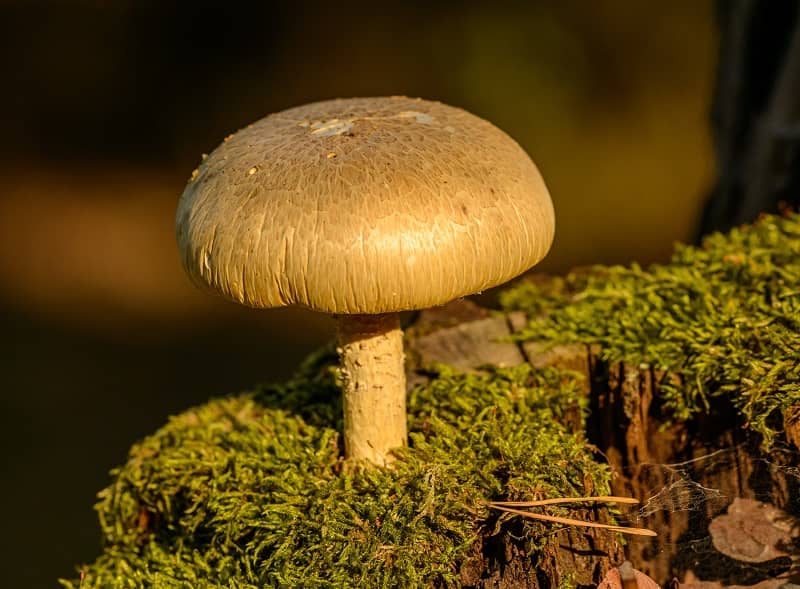
27 May The Fright and Future of Psychedelics Use for Depression and Anxiety
Magic mushrooms, LSD, and ecstasy are often in news because of being highly misused.
They are socially accepted as hazardous to health. Not to mention, the social stigma is hard-wired when it comes to psychedelics use.
However, the truth and history are quite different.
While most people use it to escape reality, the “so-called drugs” have underlying benefits.
In fact, many studies back the effectiveness of psychedelics for depression and anxiety treatment.
Psilocybin, an active ingredient found in Ecstasy and magic mushrooms, has mental health benefits.
The intake of Psilocybin produces a psychedelic effect. This later creates a sense of hallucination.
As a result, it helps psychologists treat depression and other mental health-related issues.
Moreover, the use of Psychedelics drugs for depression and anxiety has always been fascinating.
Let’s first find out what psychedelics are and their glorious history.
What Are Psychedelics?

Psychedelics or psychedelic drugs belong to the class of drugs that have the ability to induce hallucination.
They give rise to altered sensory perceptions and thoughts.
Therefore, psychedelic drugs are also called hallucinogenic drugs or hallucinogens.
Interestingly, the word “psychedelic” belongs to the Greek vocabulary which means “mind made visibly”.
Living up to its name, a high dose of Psychedelics drugs can cause dream-like states.
What Do Psychedelic Drugs Feel Like? [Effects]
The effects of psychedelic drugs vary from person to person.
However, in general, psychedelics have similar effects as a high dose of LSD. It includes:
- Hallucinations
- Altered perception of time
- Inability to communicate
- Lack of rational thinking ability
- State of Euphoria
Some of the short-term effects of psychedelics drugs may also include:
- Dry mouth
- Lack of appetite
- Sleepiness
- Dizziness
- Numbness
- Impulsive behavior
The ingestion of psychedelics basically overwhelms the brain with new connections.
As a result, the person feels freedom and breaks free. This allows him/her to have a different look at life.
In another word, it puts the user into a transient state. This allows a reset from previously stuck feelings.
Well, that’s how psychedelic drugs work!
The remerge of a new perspective makes use of psychedelics for anxiety treatment ideal.
Moving on, there are different types of psychedelic drugs.
Some of them include:
- Lysergic Acid Diethylamide (LSD)
- Dimethyltryptamine (DMT)
- Mescaline
- Ecstasy
- Psilocybin
You might think the use of psychedelics for depression and anxiety has gained momentum recently.
However, the root of psychedelics drugs to treat depression and anxiety goes way back. It has, interestingly enough, connections to the time of the Nazi attack.
Psychedelics for Depression and Anxiety – Ancient Relics
Those who grew up around the 60s and 70s may recall the fragments of use of psychedelics.
The past contains a lot of references to the spiritual and medicinal use of Psilocybin and psychedelic drugs.
Notably, people who survived Nazi concentration camps showed characteristic symptoms. This included recollection and ruminations of the family who died.
As a result, people experienced anxiety, depression, and nightmares. It was referred to as “concentration camp syndrome”.
Furthermore, it was not until the 1940s and 1960s that scientists came up with research regarding PTSD.
In the 1960s, the psychiatrist, Jan Bastrian, treated concentration camp syndrome with psychedelic drugs.
He used LSD (Lysergic Acid Diethylamide) and psilocybin. LSD and psilocybin helped them feel liberated and come out of the traumatic phase.
Nonetheless, even though it proved to have a therapeutic effect, the use of psychedelics for depression and anxiety faced the wrath of other psychiatrists.
In the 1970s after it became a party drug and stories of its psychotic breaks surfaced, it got banned in 1985.
Given the history of psychedelics use, the pendulum seems to go back.
Both the patients and doctors showcase interest in psychedelics drugs to treat depression and anxiety.
Do Psychedelics Help with Mental Illness? – Recent Scenario
The research on using psychedelic drugs for mental illness is ongoing.
However, based on what the scientists have found yet, the answer to can psychedelics drugs treat anxiety is yes.
According to a 2021 study published by JAMA Psychiatry, psilocybin with therapy is effective in treating Major Depressive Disorder (MDD).
A randomized clinical trial of 24 participants with MDD took place. A comparison was made between those who took immediate treatments and those who ignored them.
As a result, participants who immediately received psilocybin-assisted therapy showed improvement.
The psilocybin-assisted therapy successfully produced a large, rapid, and anti-depressants effect.
So, if psilocybin is actively found in magic mushrooms, do mushrooms help with depression and anxiety?
Well, there’s a possibility as research shows two doses of psilocybin can help with a year-long history of depression when combined with talk therapy.
Moreover, apart from depression and anxiety, psychedelic drugs are also used in treating other mental health-related conditions.
Can Psychedelics Treat OCD?
As per the findings, the answer will be a yes!
Out of all the psychedelics treatments, the use of psilocybin has major success in treating OCD.
According to a study, researchers used psilocybin in a clinically controlled environment on 9 OCD subjects.
Notably, it depicted a reduction in symptoms. There are many other studies that have cited that psilocybin can show rapid improvement in OCD.
Can Psychedelics Treat PTSD?
Notably, the new approach to treating PTSD includes the use of psychedelic drugs.
As per a research published in the International Journal of Neuropsychopharmacology, psychedelic drugs do have the ability. Rather, it can provide a novel approach to treating PTSD.
For instance, MDMA can help get over the fear of shame.
In fact, 2-3 sessions of MDMA have shown a significant reduction in PTSD symptoms.
Can Psychedelics Treat Eating Disorder?
By now, it is evident that psychedelics can help treat mental disorders. They are helpful in reducing depressive and anxious symptoms.
An eating disorder is also associated with changes in brain activity.
As a result, psychedelics can be of great help because of their anti-depressant and anti-anxiety effects.
Ketamine for eating disorders is found helpful.
As per the case report, a 29-year-old woman with anorexia nervosa for 15 years completely recovered.
She started the novel treatment by adopting a ketogenic diet followed by ketamine infusions.
So, at least some evidence does point towards the medical use of psychedelics.
With that said, psychedelics for treating depression and anxiety are still in their premature phase. There’s yet deep research required to know how can psychedelics treat trauma.
Still, psychedelic drug medication looks promising for treating depression and anxiety.
Thus, can psychedelics replace antidepressants?
Although it’s too early to make a statement, the results of Psychedelics for anxiety show they can soon be a replacement.
Not to mention, it has comparatively fewer side effects as compared to presently prescribed antidepressants.
Unfortunately, this doesn’t rule out the existence of side effects and risks of psychedelic drugs.
Side Effects of Psychedelics
The very fact it’s banned clears the cloud around whether or not there are any risks of using psychedelics.
Some of the side effects of psychedelics include:
- Amplified heart rate
- Heightened blood pressure
- Mild headaches
- Existence of anxiety and fear
- Altered sense of time
- Drowsiness
- Paranoia
Not to mention, some psychedelic drugs can be addictive. Maybe that’s why we often hear about celebrities ending up in rehab.
Considering the risks associated, certain people should refrain from using it:
- People with a manic history
- Those with heart-related issues
- People with a history of schizophrenia and other psychotic disorders
Currently, the only FDA-approved psychedelics drug for treatment-resistant depression is ketamine.
It lists the hallucination occurrence as a side effect rather than a mechanism.
Additionally, some doctors also prescribe Ketamine, which is FDA approved as a general anesthetic.
In spite of the restrictions, the growing demand and more successful treatments leave the future door open for psychedelics for anxiety.
Psychedelics for Mental Illness: What Does the Future Hold?
The success of psychedelic-assisted therapies has created excitement among researchers and doctors.
However, despite its effects, it remains a schedule I-level drug.
The profound power of psychedelic drugs makes them exposed to notorious use. Notably, both psilocybin and MDMA are banned in the US since 1985 at the Federal level.
Some cities have taken steps to decriminalize its usage.
For instance, in 2019, Denver and Colorado decriminalized the use of psilocybin mushrooms.
Shortly after this, the cities of Santa Cruz, Oakland, Washington DC, Somerville, and Cambridge followed the same.
Interestingly, Oregon became the first state to decriminalize the use of psychedelics. Not only this, it even legalized it for therapeutic use.
Additionally, there’s no prosecution for Native Americans for using peyote cactus for spiritual purposes.
The recent upsurge in psychedelics drugs to treat depression and anxiety seems like it’s here to stay.
In light of the encouraging stories, the specialists believe it to be rescheduled in the coming years.
Not to mention, FDA has designated MDMA and psilocybin-assisted therapies as medical breakthroughs.
The adults would be able to experience the guided consciousness-expanding to treat depression and anxiety. The future seems positive for psychedelic drugs.
What do you think?
Do you consider the use of psychedelic drugs for depression and anxiety medically sound?
Let us know in the comments section.



No Comments